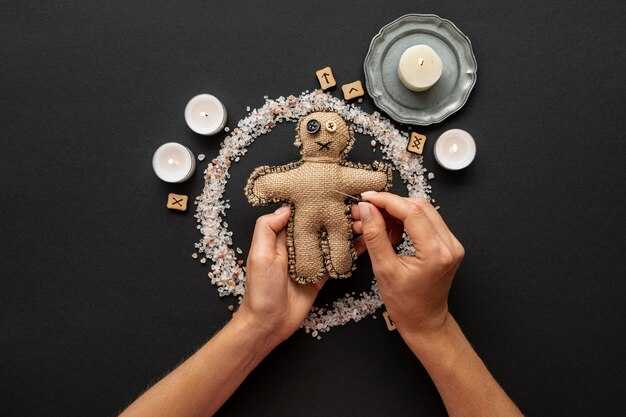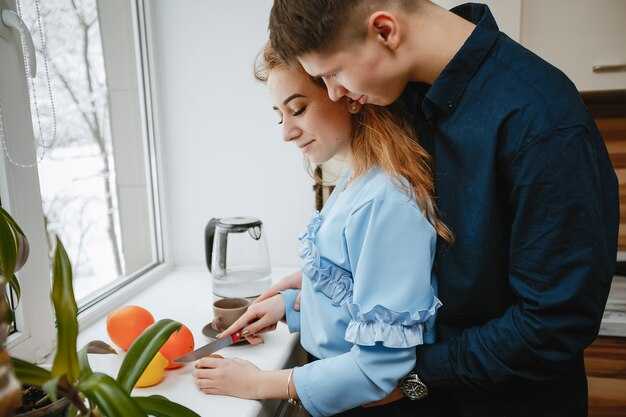I can say with absolute confidence: saying “I love you” alone won’t preserve a relationship. Love by itself is insufficient — intimacy demands far more than words. There are countless couples who declare love for one another, yet the ways they show up, whether deliberate or accidental, slowly suffocate that connection. Declaring love is not the same as demonstrating it. Love is not merely an emotion; it is expressed through acts, intentional effort, and sacrifices. Frankly, whether you feel love for someone isn’t the main point — anyone can fall in love — but staying in love requires continuous, concrete work. If you want your relationship to thrive, watch this with your partner and discuss what you each agree or disagree with. It doesn’t matter whether you accept my own definition of love — what matters is that you both share a common understanding of how love should be lived out in your relationship. Far too often we avoid these conversations — either because we’re afraid or because our partner doesn’t feel safe enough to handle difficult talks — but silence doesn’t erase needs and expectations. In that quiet, resentment, distance, and pain grow when one partner shows up differently than the other. That reaction is understandable; I’d be frustrated too.
I believe relationships flourish only when both people do the work. So what is that work? It starts with humility. Love isn’t boastful — it doesn’t assume superiority. Love is empathetic: if this is someone you claim to love, act like it — strive to understand their emotions. Accurately grasping how they feel won’t widen the gap between you; it will draw you closer, because you’ll become someone they can turn to when they’re hurting. Love also requires sacrifice and selflessness — what is love if not willingly giving for those we care about? Protecting your relationship goes beyond the clichéd “provide and protect” that some men equate with money and weapons. Your value is far more than that: loving someone means meeting their emotional needs and connecting on a heart level — choosing to be a safe haven not only physically but emotionally. As Dr. John Gottman says, love includes accepting influence: when your partner offers feedback, even if you disagree at first, love allows you to consider that there might be truth in it. Rather than immediately dismissing it as criticism, ask, “Tell me more.” Trusting someone means listening to their concerns.
That said, none of these approaches work with a narcissist. If a person prioritizes control and manipulation over mutual care, they are not capable of genuine love — their apparent kindness is transactional. Love requires mutual respect and equality. You cannot claim to love someone while subjecting them to unsafe situations, belittling them, or dominating them. In a healthy romantic partnership, both people must recognize out loud that each person’s perspectives, needs, feelings, desires, and dreams matter equally. Have you ever told your partner that? You should. There is no place for name-calling, mockery, or dismissing someone’s emotions as “too needy” or “irrational.” Those responses stem from believing you’re right and they’re wrong — an attitude that destroys connection and pushes a person away while allowing you to fool yourself into thinking you still love them.
Chances are, listening to this you’ll realize you’ve at times behaved that way toward your partner. What then? Apologize. Love apologizes. Love accepts accountability and asks how it can make amends. Love is not about perfection; it’s about direction. We all slip up and have growth to do; mature people own their mistakes, acknowledge the hurt they caused, and validate their partner’s experience. Immature people dodge responsibility or blame others. Which stance does love demand? If you remember only one thing from this message, let it be this: consider your partner deeply and intentionally. Put their needs for safety, love, connection, and closeness on the same footing as your own — sometimes above. You might fear being taken advantage of, but that only happens when the generosity isn’t reciprocated. In a mutually loving relationship, it’s hard to be exploited while you also serve the other person. Many aren’t in reciprocal relationships, and if that’s your reality you know the accompanying loneliness, frustration, emotional distance, bitterness, and resentment. You may have pleaded and tried to change things, but if your partner refuses to meet you halfway, this approach won’t work alone. Love and self-centeredness cannot coexist: you won’t feel close to someone who only thinks of themselves, and you won’t feel safe with someone who won’t make you a priority.
Part of considering someone is respecting their boundaries — knowing their limits, non-negotiables, and sexual boundaries. Love never coerces or pressures; it wants to know where they feel overextended and exhausted. Does your partner view you as a safe person to share that with? Many don’t think about these matters, yet if loving someone means caring about them, how can we truly care if we don’t take the time to know them? There are countless people who claim love but whose partners report feeling unloved and unvalued. Sure, sometimes the partner might be impossible to satisfy, but often we are simply serving our partner only according to our own preferences rather than filling their emotional tank. You don’t have to buy the whole “Love Languages” framework to accept that people feel loved in different ways. Love says: show me how you feel cared for, so I can make deposits into your emotional bank account instead of making withdrawals.
Ask your partner specifically: what makes you feel prioritized, valued, and desired? Then consistently act on those answers. Check in regularly — weekly if possible — and ask: did you feel connected this week? What did we do well? Where can we improve? What are you excited about? How can I support you next week? Were there feelings you didn’t feel safe sharing? If you claim to love someone but refuse to ask these questions, then something else is blocking you — fear, shame, or laziness — and any of those can destroy a relationship. Avoiding conflict to the point of silent resentment or staying quiet because you constantly blame yourself for problems prevents real vulnerability and chokes the relationship. Or you might simply get complacent, assuming the “dating” effort phase is over. Life is busy: jobs, kids, and stress require energy. But if you invest heart and soul in work and children and only give your partner leftovers, you’ll likely find yourself alone sooner than you think. People who reach the end of life commonly recognize that their most valuable assets were the relationships they neglected. Do yourself and your future self a favor — invest in your relationship now. It will pay dividends beyond any retirement account.
Communication is essential, but not as an empty skill: the aim is comprehension. Understanding, validation, and connection are what count. We express love through respectful, vulnerable conversation, and we receive love by responding with empathy and validation. Many of us didn’t grow up learning healthy communication or empathy; trauma can make honest dialogue triggering. What happened to us isn’t our fault, but healing and learning to avoid constant reactivity is our responsibility. You can’t want a mutually fulfilling relationship yet refuse to do the emotional work that supports it. I won’t cover all aspects of conflict here — there are other resources for that — but the central idea is that love builds safety for honesty and vulnerability. It invites and encourages honest disclosure of one’s inner life. That doesn’t mean complaining nonstop; as Gottman notes, the ratio should be about fifteen positive interactions to every one negative. Most of your time together should be filled with appreciation, affection, gratitude, and joy. Still, healthy complaints and sharing hurts are vital: they build trust by proving you can turn to one another in pain.
Critically, how someone expresses a concern matters. Say “I feel rejected when I’m left to clean the kitchen every night” rather than attacking with labels like “you’re lazy” or “you’re a jerk.” Genuine feelings — “I felt overlooked, frustrated, abandoned” — open the door for constructive response. Love listens and asks questions to understand before defending. Too often, even respectful, vulnerable expressions of hurt trigger defensiveness: we interrupt, blame, or accuse, insisting we’re not the problem. We might tell the other person they’re too sensitive, which only deepens their sense of abandonment and makes them less likely to raise concerns in the future. That pattern erodes intimacy, not strengthens it. True love invites emotional sharing — including hurts, needs, and desires — and does not dismiss or ridicule those disclosures.
If you refuse to be known deeply, or if someone punishes your vulnerability, connection collapses. It’s easy to feel close during the good times, but real intimacy means staying close during the hard times too, provided you’ve built a history of trust, respect, and mutual consideration. Ultimately, loving someone involves cultivating commitment and trust. Trust isn’t only about fidelity; it’s also built by reliably showing up, following through, and making your partner feel they can depend on you. Trust means you won’t push them away when they seek closeness or punish them for being vulnerable. This doesn’t mean losing your autonomy, surrendering your needs, or accepting every harmful behavior. It means you are deliberately building something together: protecting your bond with consistent, intentional care. Commitment isn’t simply staying in the same place while living miserably. Real commitment is a mutual choice to grow and deepen the relationship over time.
Maintaining a meaningful relationship does require effort and sacrifice — as with training for a marathon, rebuilding a car, earning a degree, or saving for retirement. Those endeavors demand discipline; the relationship deserves at least the same intentionality. Don’t let complacency steal what matters most. Wealth, status, or a perfect body cannot compensate for an empty bed and a life without meaningful connection. Often, the person who appears self-assured is actually protecting a childlike fear inside — hiding behind busyness, ego, and walls to avoid pain. Others default to selflessness out of low self-worth, hoping service and sacrifice will earn them love. That pattern is equally damaging: if you don’t believe you deserve to be loved, you can attract people who exploit that insecurity — and it becomes familiar even when it hurts.
So know what you deserve. Be firm about legitimate needs: wanting respect, consistency, intentional affection, and a baseline of reciprocity does not make you “needy.” Love involves mutual sacrifice and service; it doesn’t require perfect tit-for-tat, but it does care whether efforts feel reciprocated. Loving someone intentionally means learning what fills their emotional tank and deliberately making those deposits. It also means understanding each other’s triggers, insecurities, and trauma — not to excuse harmful behavior, but to hold compassion while maintaining healthy boundaries. For example, one partner may shut down in conflict because they feel overwhelmed and unfairly blamed; the other partner may feel abandoned by that shutdown and respond with desperate intensity. A loving response acknowledges both realities: “I can see shutting down makes you feel abandoned, and your reaction makes me feel unheard. Let’s find a different way to handle this together.” The reply from the other partner might be: “I’m sorry. I see how my shutting down triggers you. I don’t want conflict to keep driving us apart. Let’s learn new patterns because I love you and want to do better.” Then we forgive. That’s love. Forgiveness doesn’t mean tolerating repeated harmful behavior; the best apology includes changed actions. Yes, some people apologize without intending to change, and those dynamics can be manipulative. But healthy relationships also contain abundant forgiveness, not scorekeeping and grudges, which only breed bitterness and distance.
My hope is not to shame or leave you feeling hopeless — everyone fails sometimes; no one loves perfectly. But you can choose to love with intention: to pursue growth, maturity, and depth; to practice self-compassion and emotional intelligence; to speak vulnerably and set respectful boundaries; to reflect on how you show up and make needed changes. Any forward step toward more intentional love for yourself or your partner will improve your relationship and your life. Thank you for listening — I’ll see you in the next one.


 LOVE won’t be enough to SAVE your Relationship!">
LOVE won’t be enough to SAVE your Relationship!">

 They Always Come Back: The 3 Avoidant Stages No One Talks About | Mel Robbins motivational speech">
They Always Come Back: The 3 Avoidant Stages No One Talks About | Mel Robbins motivational speech">
 "Relationships Die in the Conversations that Never happen"">
"Relationships Die in the Conversations that Never happen"">
 How do you know when it’s time to walk away…">
How do you know when it’s time to walk away…">
 These are People Pleaser Problems">
These are People Pleaser Problems">
 The Final Cruel Trick Avoidants Use Once You Stop Caring (It Cuts Deep)">
The Final Cruel Trick Avoidants Use Once You Stop Caring (It Cuts Deep)">
 Childhood Trauma and Self-Defeating Behavior">
Childhood Trauma and Self-Defeating Behavior">
 The Silent Closure That Makes The Avoidant Beg For Another Chance | Jordan Peterson">
The Silent Closure That Makes The Avoidant Beg For Another Chance | Jordan Peterson">
 How to decrease her Mental load on Mothers Day">
How to decrease her Mental load on Mothers Day">
 The Relationship isn’t HER job!">
The Relationship isn’t HER job!">
 Anna Runkle Takes Your Questions LIVE">
Anna Runkle Takes Your Questions LIVE">